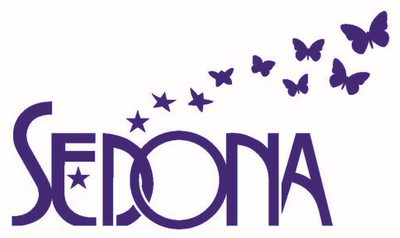Ruby (Tumbled)
Tumbled Stone measures approximately: 0.7" to 1.1" in length, although sizes vary
Picture shows a wide variety of how this stone may form - you will receive (1) Tumbled Stone, intuitively chosen for you!
This mineral is UV-Reactive, meaning in Ultra Violet (UV) or "Black" light, it will naturally fluoresce or "glow"
Ruby
Best used for:
Spiritual wisdom and joy
Inspires passion, inner-strength, and confidence
Protection from negativity and nightmares
- Excellent protection: throughout history, believed by many cultures to help shield one from harm and misfortune
- Banishes spirits of ill-intent, wards off and clears negativity, purifies and fortifies one’s energy and space
- Helps to dispel sadness, fear, anger, and negative thought patterns
- An amulet to protect against nightmares, it can also be used to bring more vivid, sometimes psychic or prophetic dreams
- It was believed, the inner-fire within a ruby would shine in the darkness, giving illumination, wisdom, insight, and reveal deception— helpful in discovering hidden truths and accessing deep spiritual knowledge
- A stone of nobility and a true heart— it could grant one the perspective and understanding in resolving disputes, the courage to communicate sincerely from one’s heart, and the commitment and resolve to make things right again
- Instills and rekindles a deep passion for life and love of all things good; helps one to rediscover their gratitude and joy
- Brings great wealth, success in business, and new opportunities where prosperity can be found
- Promotes inner-strength, self-confidence, motivation, and renewed enthusiasm
- Boosts vitality, helps rejuvenate the body’s energies when fatigued, bolsters one’s health, and helps protect from illness
History and Lore:
- In India, where the Ruby is highly regarded, it’s known as Ratnarāj or “King of the Gems”— in Hindu Vedic Astrology, it is the gemstone of the Sun and of the solar deity, Surya: it represents the lifeforce, a gemstone of fire, heat, vitality, and power
- In Burma, warriors would wear rubies into battle as they believed it made them invincible
- Traded along China’s North Silk Road as early as 200BC, noblemen and high-rank officials displayed them as a symbol of their position; they were also used for good luck, vitality, and to grant longevity
Additional Information:
- A pink-red to deep red corundum (aluminum oxide) Al₂O₃:Cr, its color caused by traces of Chromium; all other color varieties of this mineral are considered sapphires (which are not exclusively blue)
- Ruby gets its name from Latin, rubeus or ruber, meaning red
- Some specimens may contain impurities, including fine rutile needles— when conditions are right, this results in a display of chatoyance or a “cat’s eye” effect; better aligned rutile within the structure results in Asterism or a 6-pointed star visible when a single light source reflects off its surface
- Gem quality stones are almost always heat treated to improve color and clarity; filling of cracks and fractures with glass or resin is also common practice; synthetically produced Ruby is also widely available, although most mid to low grade Rubies are natural, as the manufacturing of synthetics are more profitable for precious quality gemstones
- Both natural AND synthetic Rubies fluoresce in UV-light as they share the same composition and physical properties, although it is believed synthetics will brightly glow more so, as they are created in more ideal conditions
- Historically, ALL prized red gemstones, including Ruby, where collectively known as Carbuncle; only later, with the development of precision instruments, optical tools, and a better understanding of chemistry, were gemologists able to reliably identify, recognize, and distinguish the differences between what we now know as Ruby, Garnet, Spinel, and Red/Pink Tourmaline
- In ancient times, Ruby was considered more precious than diamond— the brilliant red was more eye-catching and awe-inspiring with more precious gems displaying what appeared to be an inner-fire
- Sources of note include: Myanmar (Burma), Pakistan, Sri Lanka, Thailand, Cambodia, Afghanistan, China, Australia, and Madagascar
- Corundum, including Ruby and Sapphire, are of a hardness of 9, with only Diamond being greater in hardness
Availability: Uncommon
Hardness: 9
Suggested Cleansing Methods: Moonlight, Sunlight, Sage Smudge / Incense, Sage Spray / Energy Spray, Sea Salt (Dry), Sea Water / Salt Water, Fresh Water (All methods typically okay)
Caution: Do not expose glass/resin filled rubies to harsh chemical detergents, or ultrasonic cleaners!
Stones are natural and color/patterning/shape will differ in appearance from shown example. You will receive (1) Tumbled Stone. Please allow us to intuitive choose the right one for you!
✰ This information serves as a quick guide of subjective metaphysical properties for crystals & gemstones formed through personal experience as well as research of historical and cultural customs & practices. Each person is unique and will experience crystals in their own way depending on their life’s experiences.
✰ Crystals and gemstones are tools used for living a more positive life and should be used to empower yourself to transform and grow. We possess within ourselves everything that we need to live life fully. Crystals and gemstones serve as a visual and energetic tool to help us on our path. We should not give our power away to them. They are not meant to be a substitute for medical attention.



